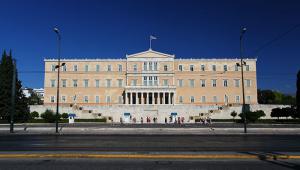The move, which should make it easier for Turkey to raises funding on international bond markets, reflects ‘recent and expected improvements in key economic and public finance metrics’, the ratings agency said in a statement yesterday. Turkey was previously rated Ba1.
Since the beginning of 2009, Turkey’s government debt has fallen from 46% of its gross domestic product to a ‘manageable’ 36%. It has also succeeded in reducing the percentage of this debt which is denominated in foreign currency and increasing the average time it has to pay off the money it owes. This reduces its vulnerability to interest rate increases, Moody’s said.
Government revenues are also increasingly resilient, it noted. Even in 2009, when Turkey’s economy shrank by 4.8%, revenues went up by 2% and have continued to increase since then.
‘These improvements, when considered in conjunction with the size, wealth, and diversification of the domestic economy, increase the sovereign's ability to withstand a crystallisation of balance of payment risks over the short to medium term,’ Moody’s said.
It also hailed the progress Turkey’s government had made on a ‘wide-ranging’ set of economic reforms to increase its competitiveness, reduce its current account deficit and address its weak savings rate.
In particular, it highlighted the impact of a new incentive scheme to increase investment in personal pensions, which has increased the number of savers by 13.5% since it was introduced in January. The government also adopted a new commercial code last year that will improve corporate governance standards and its overall competitiveness.
Measures are also being taken to address the country’s reliance on energy imports, with an emphasis on energy efficiency and the development of nuclear power, renewable and other domestic energy sources.
‘Energy imports are a key contributor to the current account deficit (in fact, in 2012, the current account deficit, excluding energy, registered a small surplus), and Moody's expects that the government's energy policy will cause those pressures to decline over time,’ the ratings agency explained.
While assigning a stable outlook to Turkey’s new credit rating, Moody’s noted a significant reversal in the improvement in its public finances could lead to a downgrade. A ‘sudden and sustained’ halt in foreign investment could also put downward pressure on its rating, it said.
However, it noted that structural reductions in Turkey’s external imbalances could push its rating up further.













